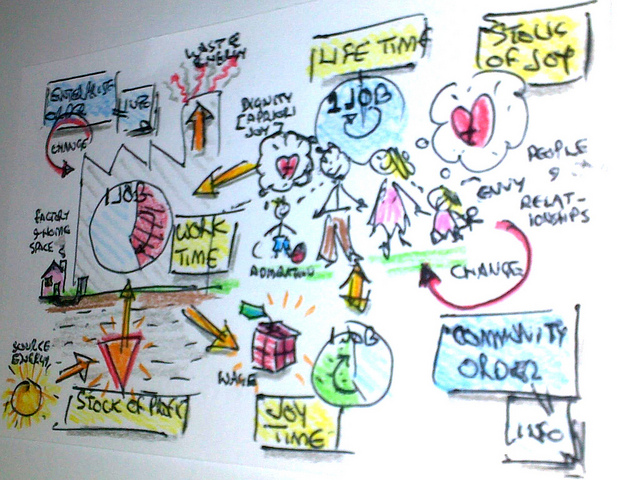There has been a lot written about how to effectively manage your time as a leader when building a new company. Paul Graham has a famous essay where he divides the needs of the engineer from the needs of the manager through the Maker’s Schedule and Manager’s Schedule. More recently, Danielle Morrill of Mattermark wrote about the transition from the Maker’s Schedule to the Manager’s Schedule as her company grows.
I have found significantly less written about how to effectively manage your time in the very early days of founding a company. In those early days, you cannot have a Maker’s Schedule since you cannot be sure exactly what you should make. However, you cannot have a Manager’s Schedule since you have to work on making something or else you will never get started. Then, what is the ideal Founder’s Schedule?
For me, the ideal Founder’s Schedule makes time for both making and meeting, since one without the other means you are not effectively narrowing in on your business. At the same time, it needs to make sure that you don’t constantly switch from one to another as you would then run the risk of context switching cost slashing all of your productivity.
Now that I’m a founder again myself, I have settled on the following schedule which I think is a great template for a Founder’s Schedule:
While it seems like all of your time is blocked off, in reality it leaves a lot of flexibility on how you spend your time. All of your time is divided up by purpose:
- Make: This is time when you are making. This does not mean always coding or building; it might mean writing, brainstorming or designing.
- Meet: This is time when you meet with people who might help you. That includes potential customers, investors, advisors and friends.
- Plan: This is when you plan what you’ll do tomorrow. Productivity studies show that you are more productive if you decide what you are going to do the night before, so we set that time aside at night. Likewise, we leave an hour or two on Friday to decide on the tasks for the following week.
- Research: This is time when you work on crazy ideas. While it might seem like a waste of time, it is important to think outside of the box and make sure you don’t get into ruts of ideas. The easiest way to break out of that is working on something that sounds crazy.
- Off: This is time when you aren’t working. You NEED this time to avoid burnout and keep the creative juices going. I guarantee you that you will be more productive all week if you take weekends to enjoy yourself. Bonus points if you exercise.
These purposes are then divided throughout the day to make the most of them.
- Make in the morning. Studies have shown that your most productive hours are in the morning (usually from 10a.m-noon), and so these are the hours when you should focus on the hardest mental tasks of making. Ideally, you would not even check your email until this time is over, lest you find yourself wasting this precious time on communications. (See Going the Distance).
- Meet in the afternoon. Lunch is an inherently social experience in our culture and you should take advantage of it, and the time after it, to meet and gather feedback. This will help you overcome the afternoon lull that would hit you sitting (or standing) at your desk trying to make.
- Make in the evening. Everyone gets a second wind, and it’s a great time to get more things done. Hopefully, you were inspired by some of your meetings or were able to figure out a problem from the morning by stepping away and now you can make the most of that creative boost.
I know there will be many people who decry this as a bad schedule, since it does not fit the typical model of how founders should spend their time. When you imagine a founder building a new company, you likely envision them in a dark room all day working in front of a computer screen, or spending every waking hour on the road interviewing customers. Doing both at once seems, at first, like it is the worst of both worlds.
However, I can tell you from experience that it has made me more productive. I no longer spend time making things that customers do not want since I have reality checks everyday. At the same time, I never spend time waiting to work on an idea since that time is reserved everyday.
If you are a new founder working to get your company get started, I hope you give this a try. If you do, let me know how it goes. But only in the afternoon — in the morning, I’ll be making.
This article was originally published at Sean on Startups, a blog about starting and growing companies.
Image credit: CC by Julian Partridge




